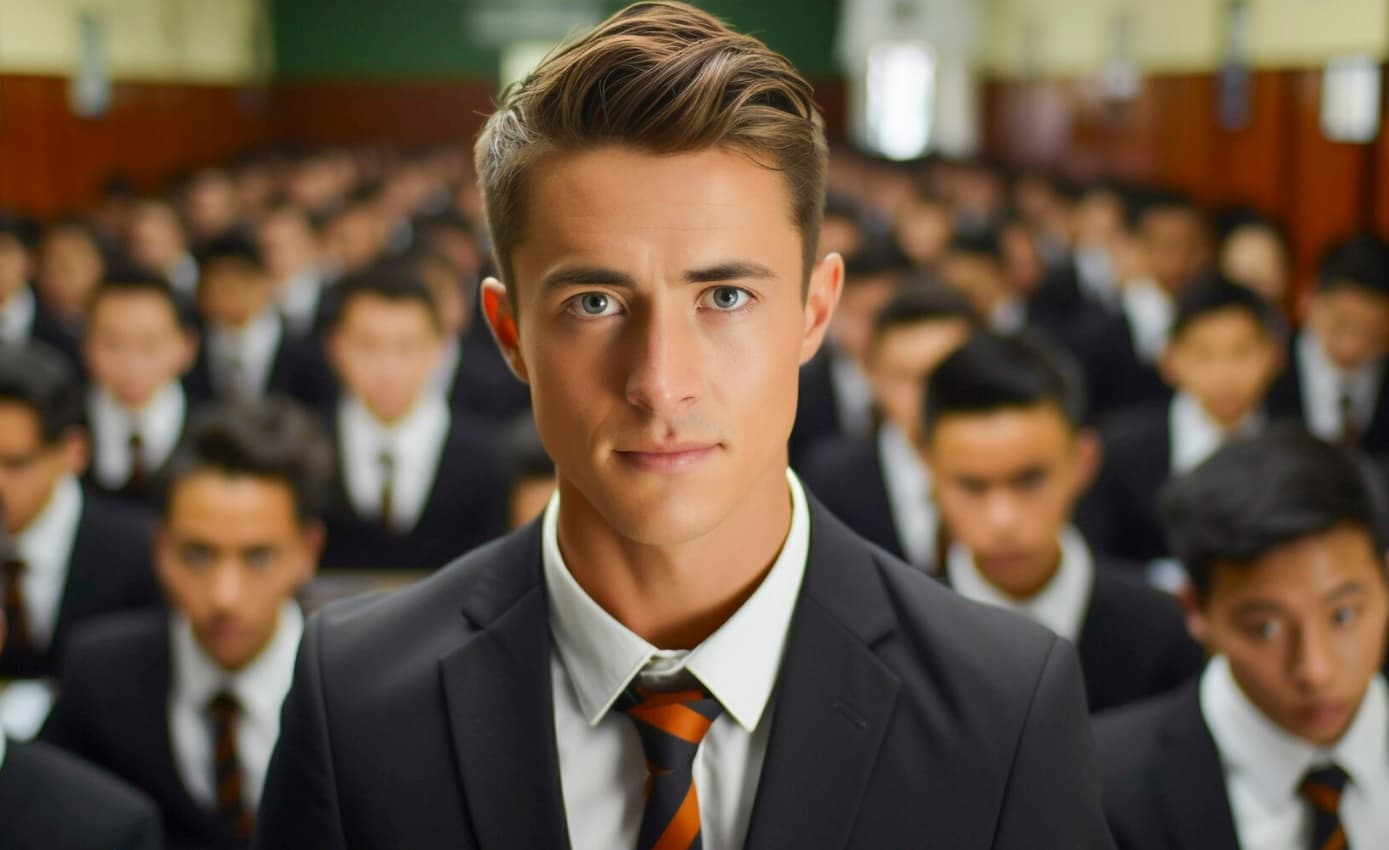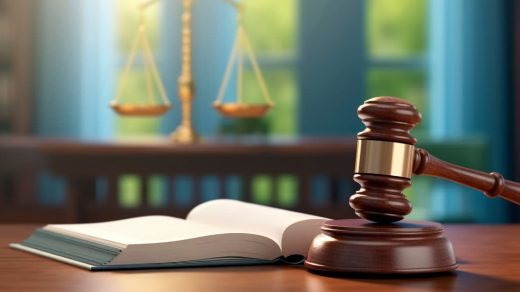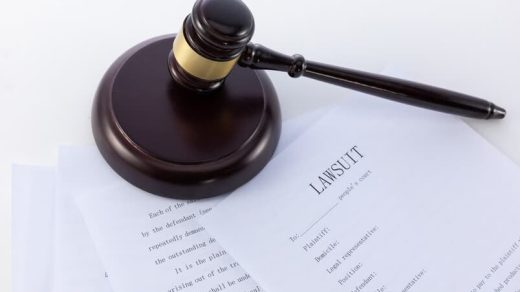The university of metaphysical sciences lawsuit update has become one of the most talked-about legal cases in alternative education.
This ongoing court battle is raising serious questions about how non-traditional schools should operate and what standards they must follow.
The case involves the University of Metaphysical Sciences, a school that focuses on spiritual and metaphysical studies, and concerns whether it meets proper educational standards.
Many people are watching this case because it could change how alternative education works across the country.
The University of Metaphysical Sciences lawsuit updates show us how courts handle disputes between traditional academic rules and new ways of learning.
Students, teachers, and education officials are all paying close attention to what happens next.
This legal fight touches on important issues like academic freedom, student protection, and whether schools that teach metaphysical subjects should follow the same rules as regular universities.
The outcome could affect thousands of students who want to study alternative subjects and hundreds of similar schools across America.
University of Metaphysical Sciences Lawsuit Update

As the case moves forward, everyone involved in education is wondering what the final decision will mean for the future of learning outside traditional classrooms.
Key Takeaways:
Here are the most important things you should know about this lawsuit:
- The case challenges how the University of Metaphysical Sciences runs its programs and whether it meets proper educational standards
- Court decisions could change rules for all alternative education schools in America
- People filing the lawsuit say the university lies about the value of its degrees and what students can do with them
- Legal results might affect how students can enroll and how schools get funding
- The outcome will set new rules for how metaphysical and spiritual education programs work
- Both sides are using different strategies to prove their points in court
History of the University
Early Beginning and Growth
The University of Metaphysical Sciences started its journey in 1925 as a small private school focused on spiritual learning. Back then, it was just a simple place where people could learn about metaphysical ideas and practices.
Key moments in the university’s history:
- 1925: The school begins as a private metaphysical education center
- 1972: New degree programs start in parapsychology and holistic health
- 2010: The university tries to get official regional accreditation, which causes government reviews
Evolution into Modern Times
By the 1970s, the school had grown bigger and started offering more courses. They added classes about:
- Energy healing techniques
- Consciousness studies
- Spiritual wellness programs
- Alternative healing methods
The university became well-known in the 21st century as a leader in non-traditional education. However, questions about its official accreditation never went away, which eventually led to the current legal problems.
Genesis of the Lawsuit
How the Legal Problems Start?
The lawsuit didn’t happen overnight. It began because of serious disagreements about:
- Academic standards and whether the university meets them
- Financial openness and how the school handles money
- Degree validity and what graduates can do with their degrees
- State education laws and whether the university follows them properly
The Critical Period
Court documents show that 2021-2022 was when things got really serious. During this time:
| Time Period | What Happened |
|---|---|
| Early 2021 | First complaints about university practices |
| Mid 2021 | State education officials start investigating |
| Late 2021 | Formal complaints filed with authorities |
| Early 2022 | Legal action officially begins |
This case has become a landmark example for other metaphysical schools facing similar accreditation challenges in today’s education world.
Filing and Motions
Legal Documents and Court Papers
The heart of this case lies in the formal legal papers that both sides have filed. These include:
- Original complaint filed in 2023 that talks about accreditation concerns
- Motions to dismiss where the defense tried to end the case early
- Motions to amend where lawyers asked to change their arguments
- Evidence motions about what proof can be used in court
Important Court Decisions
Several key rulings have shaped how this case moves forward:
Defense Team Actions:
- Tried to limit what evidence could be used against them
- Filed motions to throw out expert testimony (the judge said no)
- Asked for summary judgment to end the case quickly (still waiting for decision)
Plaintiff Team Actions:
- Focused on making sure all proper procedures were followed
- Submitted detailed evidence about accreditation problems
- Asked the court to allow expert witnesses to testify
Hearing Highlights
What Happened in Court?
The court hearings have shown us the main disagreements between both sides. Here’s what legal experts are saying:
“The hearings reveal core disagreements over institutional legitimacy and academic standards,” said legal analyst Maria Chen during a recent podcast interview.
Key Issues Discussed
Evidence and Jurisdiction:
- Whether the court has the right to decide this case
- What evidence can be used to prove each side’s point
- How to determine if the university meets educational standards
University’s Defense:
- They argue their practices meet metaphysical education standards
- They say they have the right to teach subjects differently than traditional schools
- They claim they follow all required rules and regulations
Plaintiff’s Arguments:
- They presented accreditation reports showing problems
- They brought witnesses to talk about how the university is run
- They argued the university doesn’t meet basic educational standards
Important Testimony
In 2024, there was a big court session where witnesses testified about:
- How the university makes decisions
- Whether students get proper education value
- If the degrees help graduates find jobs
- How the school’s governance structure works
Latest Developments
Recent Court Rulings
The case has seen some big changes recently. In March 2024, several important things happened:
- The judge rejected a motion to dismiss the main allegations
- The case moved forward to the evidence exchange phase
- A settlement conference in April failed to solve the disputes
- The trial preparation phase officially began
Current Status Updates
Plaintiff Team Recent Actions:
- Filed revised complaints focusing on financial transparency
- Demanded more information about how the university spends money
- Asked for detailed records of student outcomes
Defense Team Recent Actions:
- Filed motions to limit certain witness testimonies
- Challenged the validity of some evidence
- Argued for protection under academic freedom laws
| Date | Event | Outcome |
|---|---|---|
| March 2024 | Motion to dismiss ruling | Rejected – case continues |
| April 2024 | Settlement conference | Failed – going to trial |
| May 2024 | Evidence exchange begins | Ongoing – both sides sharing proof |
Upcoming Court Dates
Critical Deadlines to Watch
Everyone involved in this case needs to prepare for these important dates:
Immediate Deadlines:
- July 12: Deadline for expert witness disclosures
- September 5: Final pretrial conference
- November 18: Jury selection start date
Trial Timeline
The case is scheduled for a February 2025 trial. Legal experts say to watch for:
- Motions filed through October that might delay or settle the case
- Potential settlement negotiations that could end the case early
- Final witness lists that will show who will testify
What This Means: Both sides are now getting ready for a full trial. This means months of preparation, gathering evidence, and preparing witnesses to testify.
Plaintiff’s Approach
Legal Strategy and Arguments
The people filing the lawsuit have a clear plan for proving their case. Their legal team focuses on three main areas:
Rule Violations:
- Arguing the university breaks state education standards
- Showing evidence of improper accreditation claims
- Proving the school doesn’t follow the required procedures
Historical Evidence:
- Using precedents from other accreditation disputes
- Citing cases where similar schools were found guilty
- Referencing education law violations in other states
Financial Transparency Issues:
- Highlighting gaps in how the university reports its finances
- Questioning where student tuition money goes
- Demanding proof of proper financial management
Evidence and Witnesses
The plaintiff team is using several types of proof:
- Expert testimony from education professionals
- Financial records showing questionable practices
- Student complaints about degree value
- Government reports about accreditation problems
Defense Tactics
University’s Legal Strategy
The University of Metaphysical Sciences has built its defense around protecting its right to operate differently from traditional schools.
| Defense Argument | Key Points |
|---|---|
| Curriculum Autonomy | Claims metaphysical studies require unique teaching flexibility |
| Procedural Compliance | Documents showing adherence to all filing requirements |
| Expert Testimony | Uses scholars specializing in alternative education models |
| Academic Freedom | Argues for the right to teach non-traditional subjects |
Main Defense Points
Academic Freedom Protection:
- They emphasize their right to academic freedom
- They argue metaphysical education needs different rules
- They claim traditional standards don’t apply to spiritual studies
Procedural Compliance:
- Documentation showing they follow all required filing procedures
- Evidence of compliance with state registration requirements
- Proof of following proper administrative processes
Educational Value:
- Expert witnesses who support alternative education models
- Success stories from graduates
- Research supporting metaphysical education benefits
Impact on Academic Policies
Changes Coming to Education
This lawsuit could create big changes in how schools operate, especially those teaching non-traditional subjects.
Potential University Changes:
- Schools may need stricter oversight for non-traditional degree programs
- Credentialing bodies could revise accreditation criteria for alternative disciplines
- Course approval processes might require external peer reviews
What Schools Might Have to Do?
Current Practices vs. Potential Reforms:
| Current Practices | Potential Reforms |
|---|---|
| Self-declared program accreditation | Third-party validation mandates |
| Informal curriculum development | Structured peer-review processes |
| Discretionary enrollment policies | Standardized admission criteria |
| Limited financial reporting | Enhanced transparency requirements |
New Requirements That Might Come:
- More detailed teacher qualifications
- Better student outcome tracking
- Clearer degree value explanations
- Stronger financial oversight
Legal Precedents
What This Case Could Establish?
Legal experts are watching this case because it might create new rules for future similar situations.
“This case could establish binding guidelines for institutional autonomy vs regulatory compliance,” said legal scholar Dr. Elena Torres.
Areas of Legal Impact
Institutional Liability:
- New rules about how schools must prove their programs work
- Requirements for Accreditation Compliance
- Standards for program transparency
Academic Freedom Boundaries:
- Debate over whether metaphysical curricula qualify for traditional legal protections
- The balance between innovation and regulation
- Rights of alternative education institutions
Student Protection Standards:
- Clearer rules about what schools must tell students
- Better protection against misleading degree claims
- Stronger enforcement of education quality standards
Future Institutional Changes
How Schools Might Change?
Colleges that focus on metaphysical studies might need to make big changes:
Transparency Requirements:
- More open information about teachers and their qualifications
- A clearer explanation of what degrees mean
- Better reporting on student job outcomes
Educational Quality:
- Structured peer-review processes for courses
- External validation of degree programs
- Regular assessment of educational effectiveness
The Balance Between Innovation and Regulation
This case highlights a difficult balance:
Benefits of Regulation:
- Better protection for students
- Clearer standards for education quality
- More trust in alternative education
Risks of Over-Regulation:
- Could limit new ideas in education
- Might make it harder for innovative schools to operate
- Could reduce diversity in educational options
FAQs:
- What is the current status of the University of Metaphysical Sciences lawsuit?
The case is still active in court. Both sides have recently filed important motions, and the case is moving toward a February 2025 trial. The court rejected the university’s motion to dismiss in March 2024, so the case will continue.
- When are the upcoming court dates for the UMS legal case?
The key dates are:
- July 12: Expert witness disclosure deadline
- September 5: Final pretrial conference
- November 18: Jury selection begins
- February 2025: Trial is scheduled to start
- How did the lawsuit against the University of Metaphysical Sciences originate?
The lawsuit started because of disagreements about academic policies and how the university operates. The main issues include questions about accreditation, financial transparency, and whether the university’s degrees have real value. The problems became serious during 2021-2022.
- What legal strategies are being employed by the parties involved in the UMS litigation?
Plaintiff Strategy: Focusing on rule violations, using precedents from other education cases, and highlighting financial transparency problems.
Defense Strategy: Emphasizing academic freedom, arguing for curriculum autonomy, and showing compliance with procedural requirements.
- What are the implications of the University of Metaphysical Sciences lawsuit for higher education?
This lawsuit could:
- Change how laws apply to alternative education
- Affects how schools make policies and govern themselves
- Create new standards for non-traditional degree programs
- Impact student enrollment and institutional funding policies
- How has the media covered the University of Metaphysical Sciences lawsuit update?
Media coverage has been widespread:
- Mainstream outlets like CNN and Fox News focus on legal aspects
- Social media shows strong debates about academic freedom
- Education publications see it as a test for unaccredited schools
- Opinion pieces discuss the balance between innovation and regulation
- Are there any expert insights available on the legal dispute involving UMS?
Yes, many education law experts have shared their views:
- Legal scholars discuss institutional autonomy vs. regulatory compliance
- Education professionals debate the future of alternative education
- Analysts predict the case could establish important precedents
- Experts emphasize the need for a balance between student protection and academic freedom
Also Check:
- Salmonella Lawsuits Update
- Kennedy Funding Lawsuit
- Paul Mackoul MD Lawsuit
- Timerline Venture Partners Streameast Lawsuit Update
- White Oak Global Advisors Lawsuit Settlement
Conclusion:
The University of Metaphysical Sciences lawsuit update represents much more than just one school’s legal problems.
This case has caught everyone’s attention because it deals with fundamental questions about how education should work in modern America.
The lawsuit is really about finding the right balance between letting schools try new teaching methods and making sure students get real value for their money.
It’s about protecting academic freedom while also protecting students from schools that might not provide good education.
As we wait for the court’s final decision, we might see big changes in how alternative education works. These changes could affect how schools are checked for quality, how they teach their courses, and what they must tell students about their programs.
The case is especially important for the thousands of students who want to study subjects like metaphysics, spiritual healing, and consciousness studies.
The outcome will affect more than just the University of Metaphysical Sciences. Students, teachers, and school administrators across the country are watching closely.
They’re hoping for a decision that will help create fair rules that protect students while still allowing schools to offer innovative programs.
What happens next will shape the future of alternative education in America.
Whether you support traditional education standards or believe in the freedom to teach different subjects, this case will likely influence how we think about learning and teaching for years to come.
The final decision, expected after the February 2025 trial, will either strengthen protections for students or expand rights for alternative education institutions.
Either way, it will mark an important moment in the ongoing conversation about what education should look like in our changing world.



